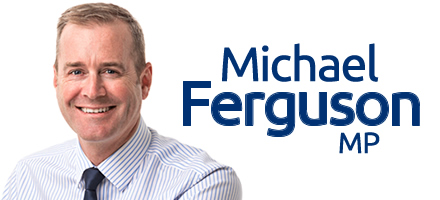Taking action to improve the mental health and wellbeing of Tasmanians is a priority for the Hodgman Liberal Government.
I am pleased to announce today that in 2015 the rate of community follow-up for Tasmanian mental health patients hit record levels, with more than three quarters of patients receiving a follow up care from a community team within seven days of leaving an acute inpatient psychiatric unit.
This is a significant improvement from 2013 when the follow-up rate was just 34.5 per cent state-wide. Rates have improved across the state, notably almost tripling for the Northside mental health unit at the Launceston General Hospital.
For many, the period after leaving a mental health inpatient unit is a vulnerable time and is also often a period of stress and uncertainty for families and carers. This is why follow up care is vital to ensure patients, families and carers are fully supported.
We have also seen a downward trend across the state in seclusion rates continue with a rate of 10.1 events per 1000 bed days in 2014 15, dropping from 15.2 events per 1000 bed days in 2013 14.
These improvements align with our goal of developing a safe, seamless, and integrated mental health system, where restrictive practices, such as seclusion and restraint, in inpatient units are reduced where possible and where support is provided in the right place, at the right time – including in the community.
The increase in community follow-up and decrease in seclusions are important improvements to how we deliver mental health care, but we recognise that there is a lot of work to be done to fix our broken mental health system. That is why late last year we launched the Rethink Mental Health, a 10-year plan developed in close consultation with the mental health community, including consumers and carers, to improve mental health and mental health care in Tasmania.
We recognise the need to appropriately resource mental health services and since coming to Government we have invested an additional $8.7 million into mental health in Tasmania, as well as providing an additional $2 million for the Mental Health Tribunal and $2.4 million to reorient the inpatient facility as part of the improved RHH Redevelopment project to provide better mental health outcomes.
Our investment includes $3 million into a range of targeted suicide prevention initiatives, including a new Tasmanian Suicide Prevention Strategy, which will be complemented by Tasmania’s first ever Youth Suicide Prevention Plan and Tasmanian Suicide Prevention Workforce Development and Training Plan.
The Strategy and the Plans are in the final stages of development and will be launched in March this year.

